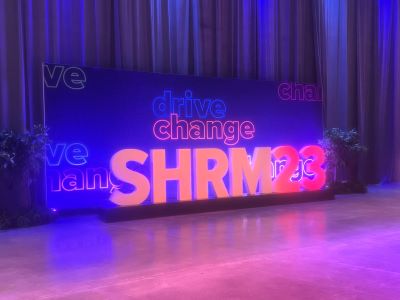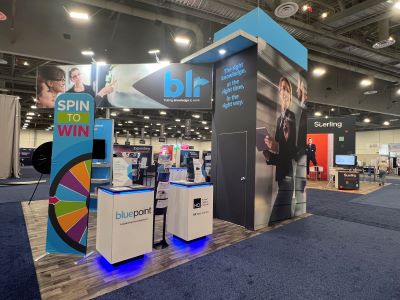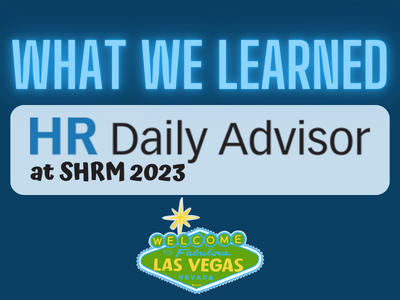The HR Daily Advisor team is at SHRM 2023 in Las Vegas, Nevada! At this year’s 75th annual conference, we’re learning from industry experts, growing our networks, and collecting best practices to share with our audience.
We’ve sat in on excellent sessions, networked with professionals, and listened to leaders expand on the future of HR. We’ll review some best practices we’ve learned in multiple areas:
Inclusive Workplaces
Ben Green; CEO, Speaker, and Consultant at BG Trans Talks; explains that HR leaders’ jobs are “make sure that we’re not just active, but proactive in about building supportive workplace structures and cultures.” It’s not enough to just verbalize support for marginalized communities. They must actively and proactively build supportive workplace structures and cultures.
The 3 key components to allyship are:
- Knowledge,
- Language, and
- Action.
Workplace Culture
Once you build an inclusive, diverse, and equitable workplace, how else can you make it a great place to work? John Ferguson, CHRO at NASCAR says that top companies prioritize:
- Trust,
- Transparency,
- Engagement,
- Communication, and
- Intention
And, when expanding your workforce management to build retention, he advises employers to:
- Meet people where they are,
- Don’t hold good talent hostage, and
- Embrace the revolving door of talent.
“We must continue to strive to be great places to work by offering flexible benefits, positive work culture, and opportunities for growth and development while also trying to be a great place to be from,” Ferguson advises.



The Future of Work
Now that you have retention sorted out, how do you address the future of work? Vivian Hairston Blade, President & CEO of Experts in Growth Leadership Consulting LLC, notes that we’ve lived through unprecedented times, and more surprises are likely to come. To be best prepared for the future, leaders need to prioritize five key areas:
- Advocating for the importance of HR,
- Improving leadership effectiveness,
- Preparing for an evolving future of work,
- Fully utilizing the talent lifecycle, and
- Increasing company resilience and agility.
With these priorities, HR teams can drive positive change. And, companies as a whole, when centering these into their corporate values, will find long-term success.

